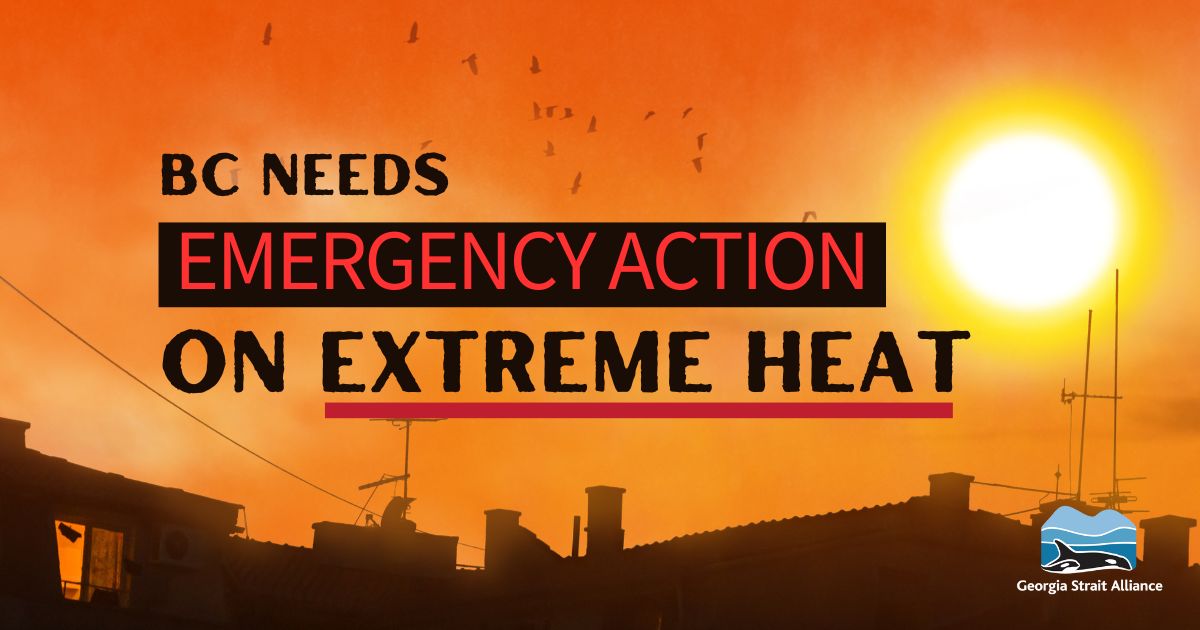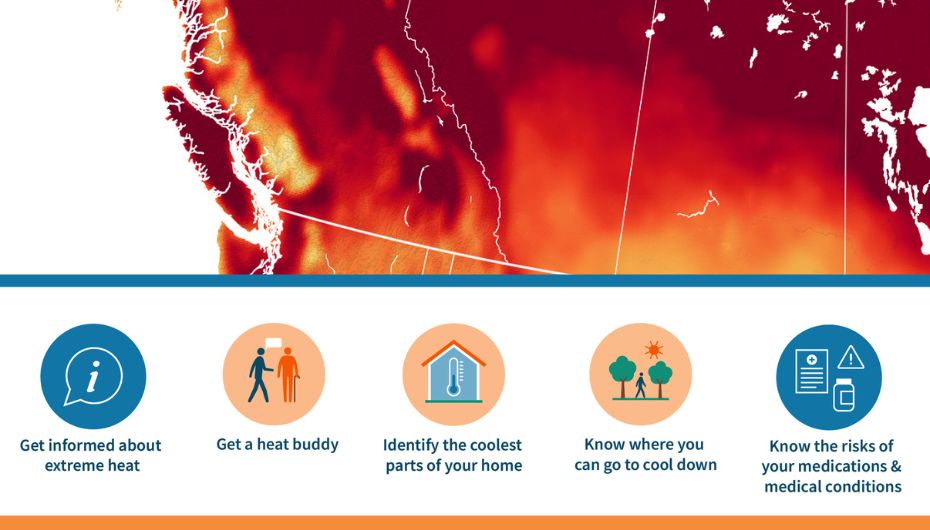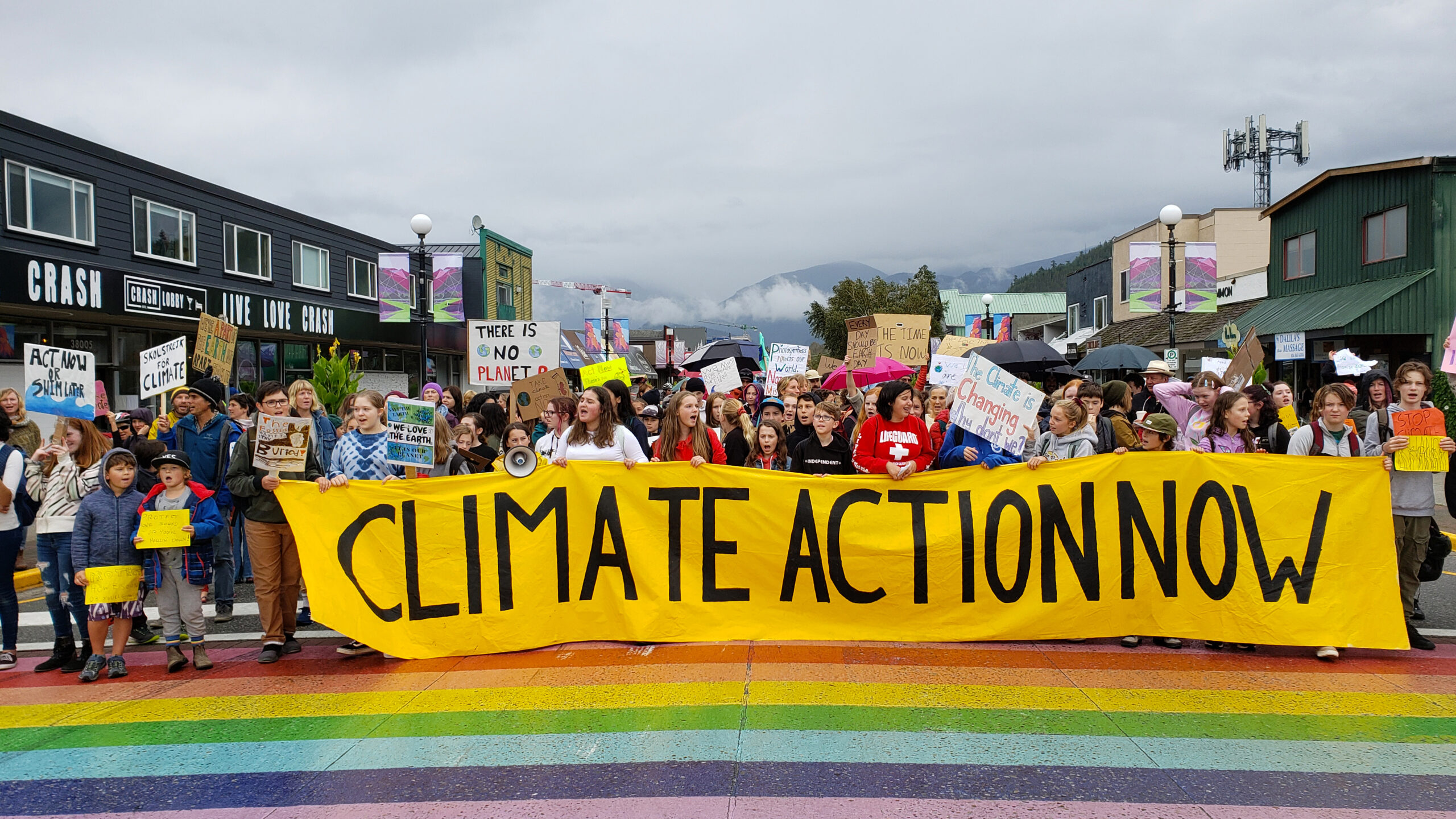
Across the world and the Salish Sea, heat waves and smokey skies are becoming regular parts of our summers. We know the deadly cost of these events: the Heat Dome of 2021 was the deadliest weather event in Canadian history; at least 619 people died as a consequence of the extreme heat from June 25th to July 1st. The town of Lytton burned to the ground and is still struggling to rebuild. Over a billion sea creatures are estimated to have died in the heat. This was a climate disaster: this heat wave was amplified by human activities that are changing the climate and supported by a lack of bold climate action on the part of our governments.
We are living during a climate disaster, and governments are not doing nearly enough to prepare. The burden of heat waves is being faced by the elderly, low income workers, and people with disabilities or mental health challenges. But as recent, deadly heat waves across Europe, Asia, and North America remind us, any of us can be made vulnerable to extreme heat. BC will face extreme heat again, and we are not ready.
At Georgia Strait Alliance we advocate for the large-scale emissions reductions and transformations of the way we build, power, and live in our society that we need, in order to protect the coastal ecosystems, economy, and communities of the Salish Sea. These vast transformations are vital to build a climate-safe future, but they will take time. We are in the middle of a climate emergency, and we need emergency action to save lives.



